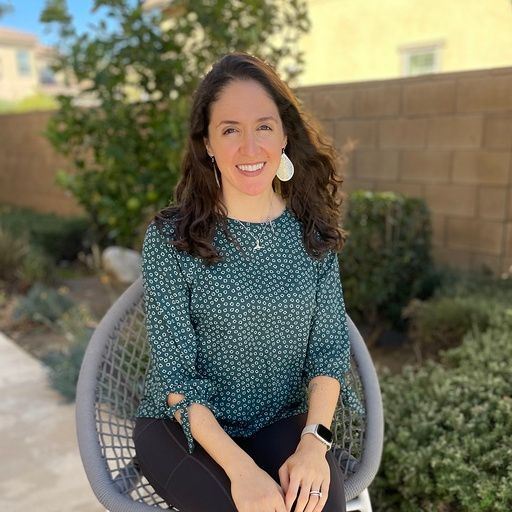Empathy & Repair: A Fuel for Personal Growth

“Why did you…”
“How could you…”
These were phrases that used to come out of my mouth often when my firstborn son was young—before I started my own healing journey.
You see, I have a son who feels deeply and who needs to use his body to express his feelings. He is a bold communicator with a strong will, and he is not afraid to let you know how he feels and what he thinks.
Early in his development, this often looked like hitting, biting, flailing, or other behaviors that didn’t look so “good” or “nice”. I saw these behaviors and they caused me internal panic. I felt so desperate and confused. I felt embarrassed – his behaviors felt like a reflection of my parenting, and I didn’t want to endure the judgment of others.
I loved my son so deeply, but I struggled to understand him and his needs because I was so afraid of the behaviors. I was stumbling along, leading from fear and panic, grabbing tools like shame and threats and criticism to try to control the behaviors so they would stop.
That was the way I was raised, and it “worked” on me. I grew to be a “good girl”. A people pleaser. Flexible, peaceful, and kind always. Looking “perfect” even on the outside, but underneath—conflict avoidant, scared of judgment, controlling myself and my family, inner criticism and cruelty to stay in “peace” with others.
When I started my parenting journey, I struggled to access empathy because I was reacting to my chronic fear, confusion, and desperation. I struggled to identify the “why” behind any behaviors. The questions I wanted to ask were more like: Why can’t my parenting journey just be easier? I had friends who had those “easy” kids – you know the ones that just “listen” and “obey” naturally. Why couldn’t I have one of those?
Cue all the guilt stories about not appreciating the wonderful child I did have.
What I didn’t realize at the time was that my struggle wasn’t about my son’s behavior at all—it was about
my own relationship with emotions, mistakes, and connection. I was trying to control because I had never learned how to handle conflict and how to repair. I was afraid because I didn’t know how to meet emotions – my own or my child’s – with empathy. But the very skills I lacked, empathy and repair, became the keys to my own transformation.
How Empathy Helps You Grow and Growing Helps You Find Empathy
Curiosity has always been an easy tool for me to access outside of my parenting. But when it came to my son’s behavior, I struggled. My nervous system would enter fight/flight mode and curiosity was no longer available to me.
This was my starting place in my healing journey as a mother. I began to get curious about my lack of curiosity with my son.
Why couldn’t I access curiosity in the moment?
What was my experience in the tense moments?
What were the beliefs, stories, and feelings I was experiencing underneath these hard moments?
These are all the questions we begin to unpack at Jai Institute for Parenting when training to become a Parent Coach.
Through this process, I began to see that my upbringing and my partner’s upbringing are reflected in our relationship with our kids.
And that means…
We will be triggered by moments that remind us of our upbringing in ways that we may not consciously understand in the moment.
This means that once I understand how I felt as a child in moments like what my child is experiencing now with me, I find more empathy for myself and my child. From there, we naturally transform the pattern without any force or pretending to be anything as a parent.
Our triggers are our biggest opportunities for healing ourselves and our relationships with our kids— allowing us to step into our legacy with new generational patterns of connection and unconditional love.
But what happens when we don’t get it right? That’s where repair comes in.
The Power of Repair When We Don’t Get it Right
There will ALWAYS be times when we don’t get it right, even after years of dedication and practice. Our repair process is how we move from a place of rupture and disconnection to a place of commitment and love.
Our capacity for repair will be reflected in our ability to grieve moments that didn’t go according to plan, accept the reality of the moment, and forgive ourselves and our family members. Through our process of repair, we will show our kids how to make mistakes and how to be human. We will show them how to feel shame and grief and then how to move forward toward the visions and values we hold as a family.
In my house, we practice taking Failure Bows when we make a mistake. We practice celebrating each other’s growth and learning so that hope stays intact, and we don’t drown in shame (which prevents growth and learning). We practice Rewinding the Moment after we are all feeling better, so that we can live through the moment that didn’t go quite right again with practice, play, and connection. It helps us to feel like we are a team working through this life thing together.
As you deepen this practice, you will naturally discover creative ways for your family to grow and heal together.
Where to Begin
Empathy and repair are foundational skills that naturally emerge and strengthen from our personal growth.
We begin where we are. We begin by getting honest about where we are right now in our parenting and our family culture.
We start by becoming curious about our triggers. When our kids trigger us, we ask ourselves, "What is coming up for me right now?” We challenge ourselves to go below the blame and criticism of our children into the more tender layers, like “I am afraid I am not getting this right” and “I wish this was easier.”
We start to become more mindful and aware of ourselves. We begin practicing presence internally with ourselves. At any moment of the day, you can ask yourself: “How am I doing today?” You can close your eyes and start slowing your breathing. You can practice noticing how your body is doing, what feelings might be here for you today, what you are needing or longing for at this moment.
Through this process, you learn more about yourself and what you need to thrive as a human and as a parent. You will also find that the more presence and empathy you offer yourself, the more presence and empathy you will be able to offer your kids.
Empathy and repair aren’t just parenting tools. They are life tools for personal growth, relationships, and self-awareness. Parenting can be your hardest challenge or your biggest opportunity. Jai Institute for Parenting is a place to learn how to embrace parenting as a self-growth opportunity—becoming more of what you wish to see in the world and leading your parenting from there.
If you are curious to know more about transforming your parenting and investing in your personal growth, claim your free copy of
How to Become An Empowered Parenting Coach, learn about Empowered Parenting, and how it can help your family and impact parents and children in your very own Parent Coaching Business.
Meet Your Author, Marissa Goldenstein
Marissa Goldenstein, a Jai Certified Master Parent Coach, is devoted to guiding parents toward mindfulness and joy in their parenting journey. Marissa demonstrates a proven commitment to innovative education, having a history as a co-founder of a visionary elementary school that focused on cultivating changemakers through curiosity, connection, and community. Leveraging her MBA and an MA in Experimental Psychology, she seamlessly integrates both business and human development insights into her coaching practice.
Beyond coaching, Marissa embraces mindfulness in her own parenting alongside her partner and their two sons, engaging in family dance parties and adventurous learning experiences whenever possible.
http://marissagoldenstein.com
Share This Article:
Curious for more?














